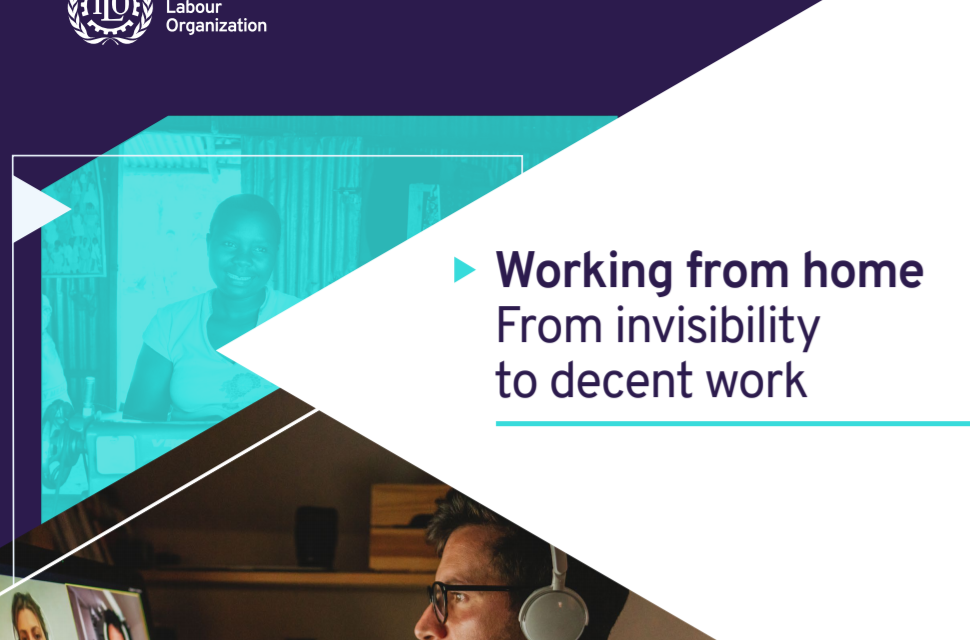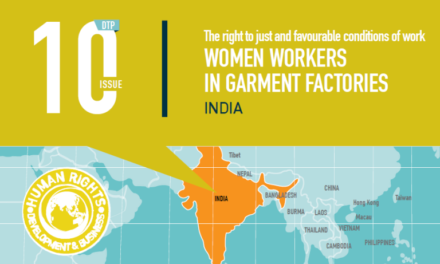On completion of 25 years of the International Labour Organisation’s (ILO) Homework Convention (177), which calls for protection and equal rights to all homeworkers, the ILO have published a comprehensive report about homeworking. The report seeks to analyse homeworking from both workers and employer’s perspectives, and to advance guidance on the policies required to pave the way for decent work for all homeworkers. Included within this report is a case study of the work that Cividep undertook in collaboration with Homeworkers Worldwide and Pentland Brands.
This collaboration with the brand, which began in 2017, enabled Cividep to map and explore the homeworking supply chain of one of their supplier companies in Ambur. Following our recommendations, Pentland adopted an exemplary homeworking policy, which recognises the role of homeworkers in its supply chain and commits to working with their suppliers to improve transparency and working conditions. An excerpt from the ILO report is enclosed below.
In 2017, Pentland Brands adopted a Homeworking Policy, with input from HomeWorkers Worldwide (HWW), a United Kingdom-based organization that supports homeworkers throughout the world. The company recognizes the role of homeworkers in its supply chain and has committed to work with suppliers and others to improve their conditions. One of its suppliers, in partnership with HWW and the Indian labour rights NGO Cividep, mapped the chain in 2017 and again in 2018 and confirmed that homeworkers were hand-stitching certain styles of shoes. Interviews with management, homeworkers and agents distributing work to them identified low piece rates, the lack of social security and work-related health problems as the most urgent issues. Focusing on a specific Pentland order, HWW and Cividep mapped the piece rates paid to homeworkers and the commission retained by agents and identified the roles played by agents (tracking orders, quality control), which are often overlooked. The company and the supplier carried out a time and motion study to calculate piece rates for homeworkers that linked their pay to minimum wage rates.
In late 2018, a new payment system was introduced that raised piece rates by one-third on average in order to comply with the minimum wage. Moreover, the system assured that all homeworkers would receive the same rate for a given task. Between December 2018 and February 2019, Pentland’s supplier implemented a simple paper-based system (job cards) to track orders and payments to homeworkers, based on model tools provided by HWW. These are transparent to homeworkers and open to inspection by interested parties. Instead of charging commission, over which the factory had no control, agents are now paid a set fee per pair of shoes. The cost of the increased piece rates was met by the supplier, but because of these additional costs HWW emphasizes the need for more brands and suppliers to join such initiatives such as in order to make improvements sustainable.
Access the full report here.





